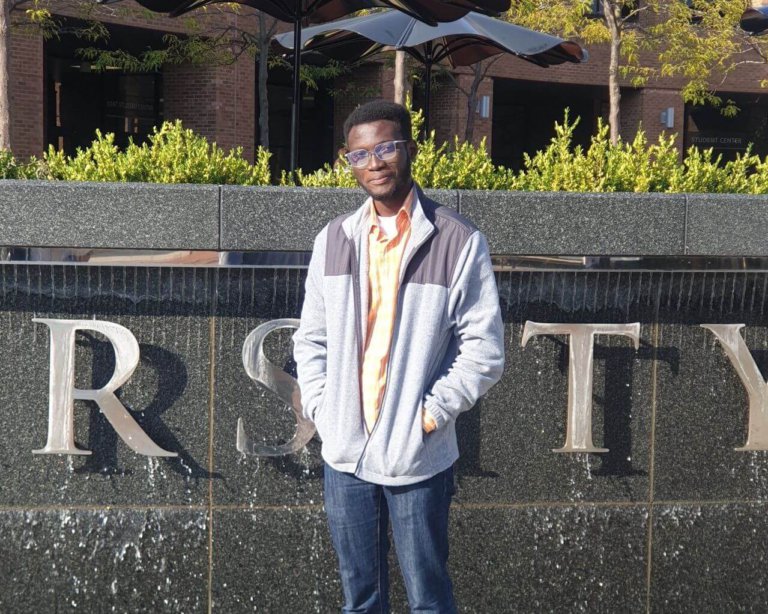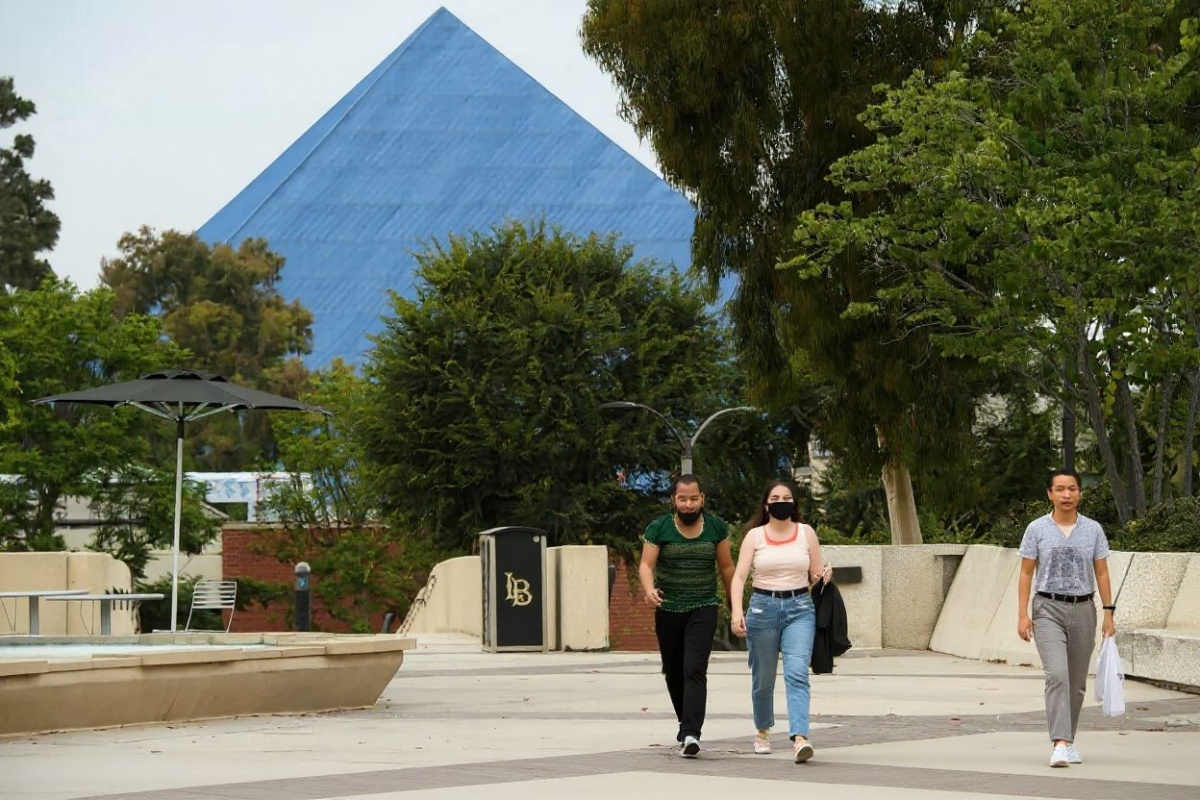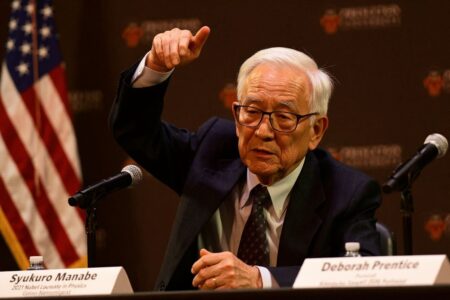
If at first you don\’t succeed, try, try again. This adage rings true not just for American inventor Thomas Edison, whom we have to thank for the light bulb, but also for Kobina Oduro Korankye, a Ghanaian student at Kent State University.
Korankye\’s plan to study abroad was peppered with obstacles, with funding serving as a major hurdle for the aspiring international student. In 2018, he applied to several schools abroad but didn\’t make the cut. While applying for a Canadian visa, he was rejected based on insufficient funds. Despite this, he persisted again with the support of his father.
Finally, for the fall semester of 2019, he applied to five new schools and got into all of them except Bowling Green State University. He deferred his admissions to the fall of this year and spent a year improving his writing samples.
Ten days before his visa interview to study in the US, his father passed away. Now, more determined than ever, Korankye is inspired to do his best to excel in his philosophy studies at Kent State University.
We talk to him about his studies to date, and his advice for prospective applicants:
Where does your interest in philosophy come from?
Before I studied at the University of Ghana, I watched a movie called “God’s Not Dead”. This was about a student who tried to prove the existence of God to a philosophy professor who held the opinion that God didn’t exist.
I fell in love with how the class was held in the movie and wondered about philosophy itself. I researched it online and it seemed pretty cool.
So, I made sure I selected philosophy as part of my courses when I applied to uni in Ghana. I didn’t pick it with the intention of studying it throughout my undergraduate years though.
I was just curious at the time and wanted a class where I would have such interesting conversations. After thinking I was going to drop philosophy after one academic year to focus on political science, I realised it was much more mentally rewarding.
 Don't give up too easily; persistence pays off in the end.
Don't give up too easily; persistence pays off in the end.
What made you decide to study abroad at Kent State University? Walk us through your scholarship application ordeal.
I decided to pursue philosophy abroad, primarily, because there were so many aspects of doing it that I needed to get exposed to. The philosophy department at the University of Ghana has some of the best scholars in African philosophy.
I wanted to pursue my graduate studies in this field in an institution that emphasised plurality of philosophical methods. I found that at Kent State University, they have a large faculty who specialise in continental, analytic, Asian and African philosophy.
It took me about three admission cycles to finally get into a graduate programme. I owe a lot to God, my parents and my girlfriend for pushing me to keep applying regardless of the obstacles.
My father and my girlfriend pushed me to write the Graduate Record Examinations (GRE) and because of my procrastination, I ended up not making it for the first cycle which would have given me a headstart in the fall of 2019.
After my first round of rejection and lack of funding opportunities, I decided to heed my father’s advice and write the GRE and TOEFL to apply for schools again for 2020.
The University of Windsor in Canada gave me a graduate assistantship without a tuition waiver so I accepted their offer and applied for a Canadian visa. Unfortunately, I got rejected based on insufficient funds but this motivated me to keep trying.
In 2021, I got full funding from both the University of Mississippi and Kent State University and I made the decision for the latter. I chose Kent State University because I felt their programme would expose me to a wider variety of fields in philosophy.
I lost my father 10 days before my visa interview and it still saddens me that he wasn’t able to see me off from the airport.
What does your scholarship cover and how does it help you?
My scholarship at Kent State University covers my full tuition, 70% of my health insurance and gives me a stipend of US$14,000 a year to help with accommodation and other living expenses.
What was the hardest and easiest part of the application? How did you overcome these challenges?
The hardest part was developing a writing sample of a topic in philosophy because I had to do a lot of writing and rewriting. I had to contact a lot of people to read my work and give me feedback.
It’s always difficult to have to start over when you think you’re finished. The easiest part was the TOEFL exam since I’ve done my entire education in English so it wasn’t much of a challenge.
The key thing was having supportive friends and lecturers around me who were willing to read my papers and give me valuable feedback. I had a friend called Francis Nyamekeh who was also applying to the same programme in philosophy.
We would read each other’s papers and provide constructive criticism. Nyamekeh also got admitted to the University of Tennessee Knoxville under a fully-funded programme.
What advice would you give to prospective applicants on how to manage their budgeting and applying for scholarships?
Applying to graduate school is a lot of money so you have to ensure that you apply to schools that are best suited for you. It’s always best to apply to schools where GPA requirements and GRE scores fit your profile.
This will increase your chance of getting in so you don’t have to keep on paying application fees to other schools. I was told the biggest deciding factor was the writing sample.
Philosophy departments want to admit students who display talent in rigorous philosophical inquiry and the writing sample is the best judge. So my advice would be, if you’re interested, spend a lot of time developing your writing samples.
What advice do you have for international students looking to start a new chapter in the US?
Stay calm and enjoy every moment. There are many opportunities to be taken advantage of, you just need to build the right network. To make use of a monthly budget of US$100, I would spend it on food, groceries and some house supplies.
What do you like most about the US so far?
The people are very open and honest and I like the fact that they’re not afraid to say what they think and pursue what they believe in. I also like how you can stand up for what you want without fear.
Can you share a memorable and non-academic experience you’ve had in the US?
Going to the Kent State Recreation Centre with a Ghanaian and Ethiopian friend I made on campus to play some games.
What about your hometown. Can you share a little about it with us?
I was born in Cape Coast which is known for the slave dungeons and castles used during the transatlantic slave trade. If you were to visit, I’d take you on a tour and afterwards go and get some seafood.
What’s the local food like in the US compared to home?
I don’t think you can categorise sushi as American but I still haven’t gotten used to the taste so it’s not my favourite. However, I do like burgers and fries.
What from the US are you planning to bring back home?
At the moment, I haven’t found anything fascinating to bring back but I’m hoping to find something.










